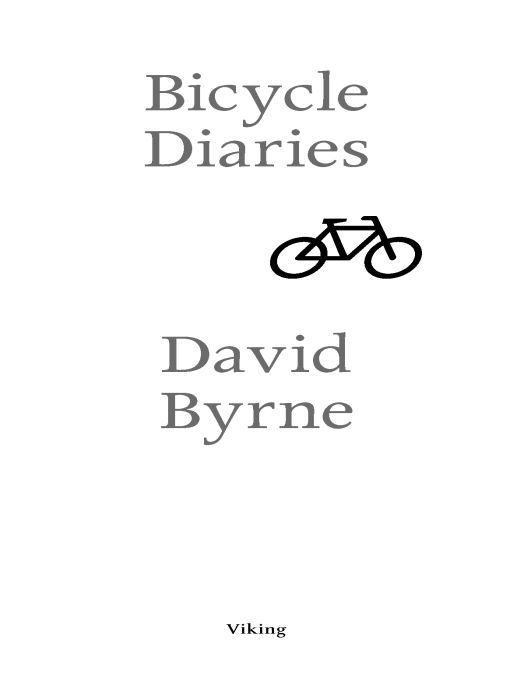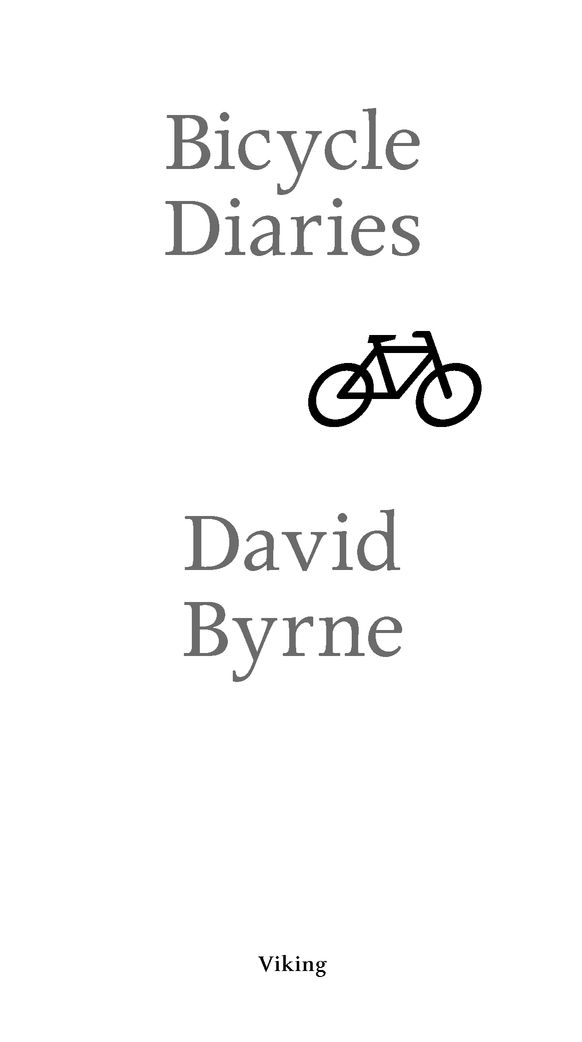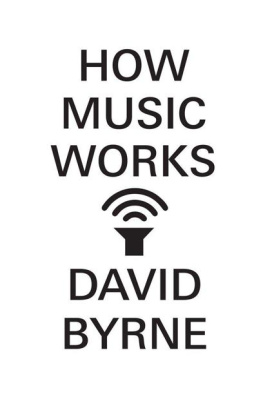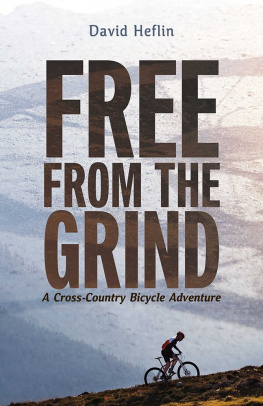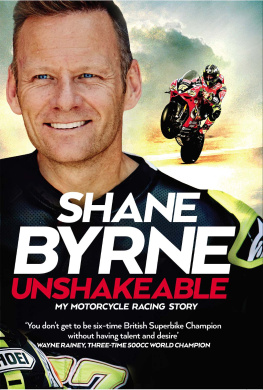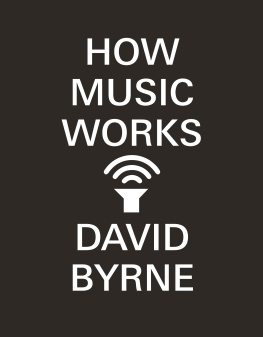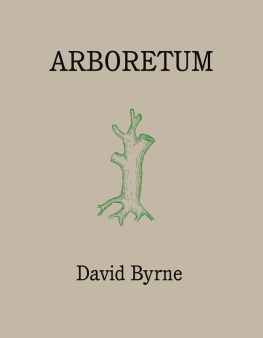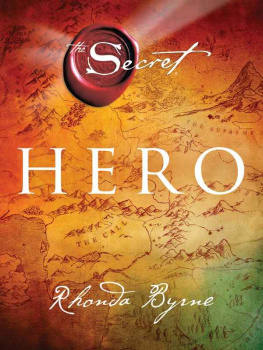Table of Contents
Also by David Byrne
Arboretum
E.E.E.I. (Envisioning Emotional Epistemological Information)
The New Sins
Your Action World: Winners Are Losers with a New Attitude
Strange Ritual
True Stories
For Maluwho doesnt ride a bike... yet
Acknowledgments
Scott Moyers, my agent at the Wylie Agency, suggested some time ago that there might be a book here, with the thread of my bike explorations of various cities as a linking device. His reference was W. G. Sebald, specifically his book The Rings of Saturn, which uses a rambling walk in the English countryside as a means of connecting a lot of thoughts, musings, and anecdotes. I cant pretend to have come anywhere close to Sebald as a writer, but setting the bar that high gave me something to shoot for. I may also have mentioned to Scott Tropical Truth, Caetano Velosos account of the Tropiclia years in Brazil, in which he uses his memory of that time as a springboard to discuss a host of issues and events. Both books go off on a lot of tangents, which, for them at least, works fine. I could see that it was possible to make the form work.
Though Id been keeping a travel and tour diary for decades, Danielle Spencer in my studio helped encourage and facilitate moving that online. Blogging its called. Im still finding my way to where I fit in the blogosphereI realized early that I didnt want to produce either an exclusively metablog (a series of links to interesting things seen or read online) or an exclusively personal diaryI dont think my personal life is very interesting or unique. However, I did find that the journal/blog was a great way of trying to express and articulate thoughts, feelings, and ideasmany of which occurred to me while traveling, which often meant biking around various towns. And the blog allows links, photos, videos, audio, and all sorts of things to be part of the reading experiencean experience I hope digital readers will be able to render eventually.
Thanks to editors Paul Slovak and Walter Donohue for notes and commentswe all realized that a blog is not a book. Thanks to my girlfriend, Cindy, for comments and companionship on some of these rides. And thanks to Emma and Tom, my parents, for getting me my first bike.
Introduction
A bike is the worlds most used form of transportation.
Ive been riding a bicycle as my principal means of transportation in New York since the early 1980s. I tentatively first gave it a try, and it felt good even here in New York. I felt energized and liberated. I had an old three-speed leftover from my childhood in the Baltimore suburbs, and for New York City thats pretty much all you need. My life at that time was more or less restricted to downtown Manhattanthe East Village and SoHoand it soon became apparent to me that biking was an easy way to run errands in the daytime or efficiently hit a few clubs, art openings, or nightspots in the evening without searching for a cab or the nearest subway. I know, one doesnt usually think of nightclub bing and bike riding as being soul mates, but there is so much to see and hear in New York, and I discovered that zipping from one place to another by bike was amazingly fast and efficient. So I stuck with it, despite the aura of uncoolness and the danger, as there werent many people riding in the city back then. Car drivers at that time werent expecting to share the road with cyclists, so they would cut you off or squeeze you into parked cars even more than they do now. As I got a little older I also may have felt that cycling was a convenient way of getting some exercise, but at first I wasnt thinking of that. It just felt good to cruise down the dirty potholed streets. It was exhilarating.
By the late 80s Id discovered folding bikes, and as my work and curiosity took me to various parts of the world, I usually took one along. That same sense of liberation I experienced in New York recurred as I pedaled around many of the worlds principal cities. I felt more connected to the life on the streets than I would have inside a car or in some form of public transport: I could stop whenever I wanted to; it was often (very often) faster than a car or taxi for getting from point A to point B; and I didnt have to follow any set route. The same exhilaration, as the air and street life whizzed by, happened again in each town. It was, for me, addictive.
This point of viewfaster than a walk, slower than a train, often slightly higher than a personbecame my panoramic window on much of the world over the last thirty yearsand it still is. Its a big window and it looks out on a mainly urban landscape. (Im not a racer or sports cyclist.) Through this window I catch glimpses of the mind of my fellow man, as expressed in the cities he lives in. Cities, it occurred to me, are physical manifestations of our deepest beliefs and our often unconscious thoughts, not so much as individuals, but as the social animals we are. A cognitive scientist need only look at what we have madethe hives we have createdto know what we think and what we believe to be important, as well as how we structure those thoughts and beliefs. Its all there, in plain view, right out in the open; you dont need CAT scans and cultural anthropologists to show you whats going on inside the human mind; its inner workings are manifested in three dimensions, all around us. Our values and hopes are sometimes awfully embarrassingly easy to read. Theyre right therein the storefronts, museums, temples, shops, and office buildings and in how these structures interrelate, or sometimes dont. They say, in their unique visual language, This is what we think matters, this is how we live and how we play. Riding a bike through all this is like navigating the collective neural pathways of some vast global mind. It really is a trip inside the collective psyche of a compacted group of people. A Fantastic Voyage, but without the cheesy special effects. One can sense the collective brainhappy, cruel, deceitful, and generousat work and at play. Endless variations on familiar themes repeat and recur: triumphant or melancholic, hopeful or resigned, the permutations keep unfolding and multiplying.
Yes, in most of these cities I was usually just passing through. And one might say that what I could see would therefore by definition be shallow, limited, and particular. Thats true, and many of the things Ive written about cities might be viewed as a kind of self-examination, with the city functioning as a mirror. But I also believe that a visitor staying briefly can read the details, the specifics made visible, and then the larger picture and the citys hidden agendas emerge almost by themselves. Economics is revealed in shop fronts and history in door frames. Oddly, as the microscope moves in for a closer look, the perspective widens at the same time.
Each chapter in this book focuses on a particular city, though there are many more I could have included. Not surprisingly, different cites have their own unique faces and ways of expressing what they feel is important. Sometimes ones questions and trains of thought almost seem predetermined by each urban landscape. So, for example, some chapters ended up focusing more on history in the urban landscape while others look at music or arteach depending on the particular city.

